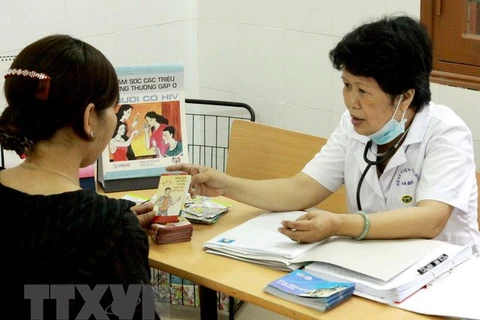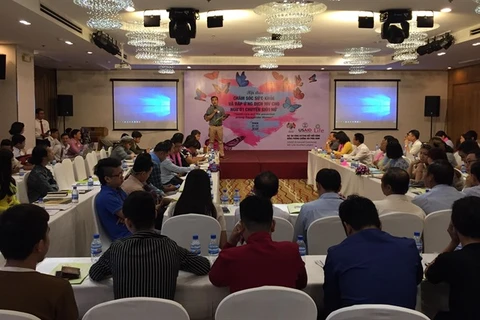Hanoi (VNA) – Early HIV testing is essential for pregnant women to minimise the risk to transmit the virus from mother to child.
This is the main message of the action month to prevent mother-to-child HIV transmission in June 2018.
The purpose of the action month is to promote the involvement of the entire political system and people in reducing the rate of mother-to-child HIV transmission to below 2 percent by 2020.
It also aims to raise the awareness of people from all walks of life, especially pregnant women and spouses of people with HIV, of the benefits of early HIV testing.
Activities held during the month also look to reduce discriminations against HIV-infected pregnant women and their children.
Throughout the month, services to prevent mother-to-child HIV transmission will be stepped up, including expanding HIV testing for pregnant women, and providing anti-retroviral drugs for HIV-infected women.
The Ministry of Health’s Maternal and Child Health Department reported that the rate of HIV infection among the country’s two million pregnant women every year is 0.25 percent.
Pregnant women living in districts reported to be HIV hotbeds in 32 provinces and cities will be tested for HIV. All those who are confirmed HIV positive will be given long-term anti-retroviral (ARV) treatment.
Vietnam is aiming to keep the rate of new HIV/AIDS infections below 0.3 percent, while reducing the impact of HIV/AIDS on socio-economic development.
Vietnam saw decreases in the number of new HIV infections, people living with AIDS and AIDS-related fatalities for the tenth consecutive year in 2017, according to the Ministry of Health.
More than 209,400 people are living with HIV nationwide, including more than 90,100 cases of HIV developing into full-blown AIDS, and about 94,600 people have died of HIV/AIDS so far. The country’s HIV/AIDS prevalence among the population remains below 0.3 percent.
Last year, the country recorded about 9,800 people newly infected with HIV and 1,800 deaths due to HIV, down 1.1 percent and 15 percent, respectively, from 2016. The number of people contracting AIDS also declined by 39 percent.-VNA
VNA
























